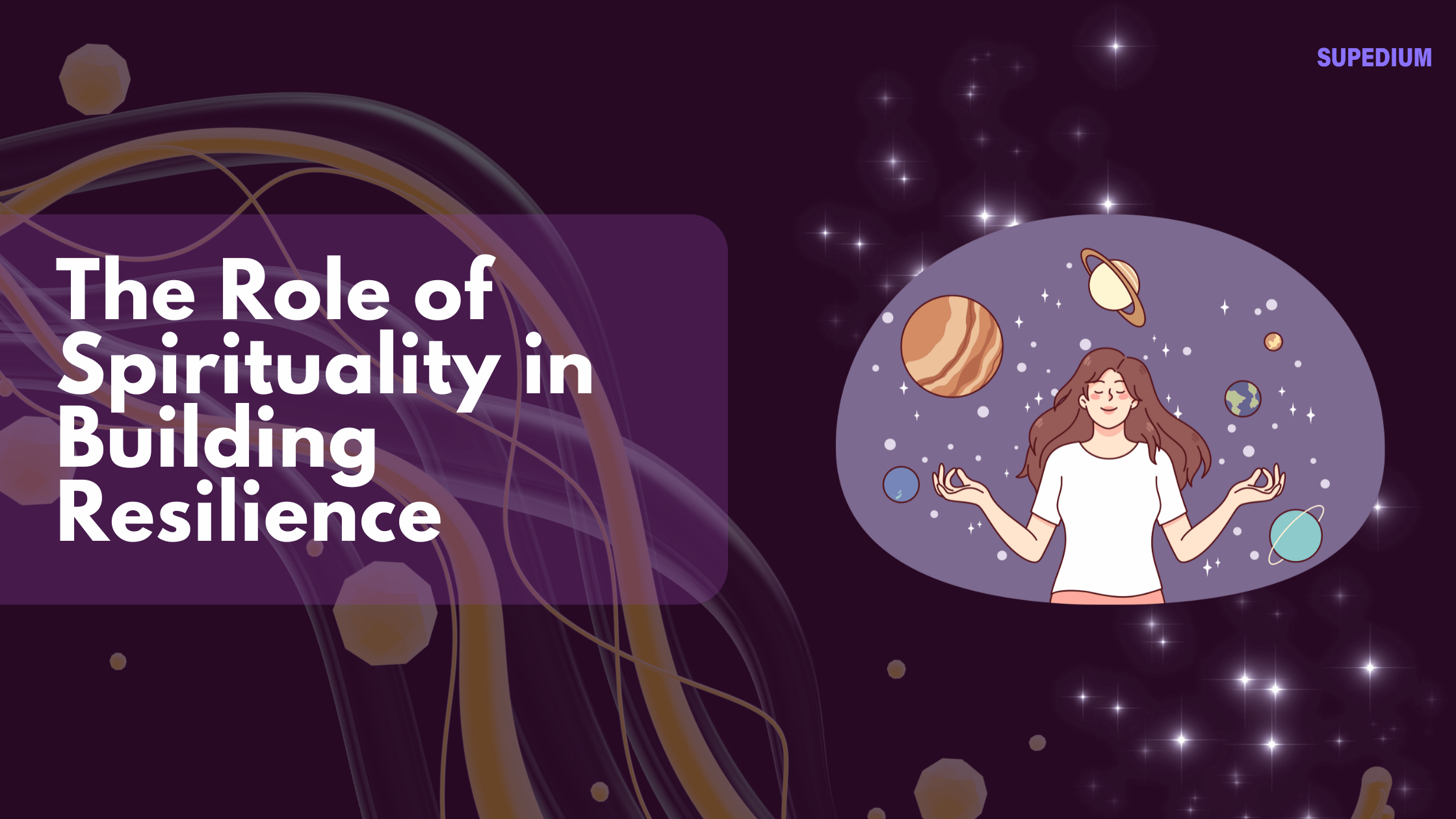Table of Contents
- 1 I. Introduction
- 2 II. Understanding Resilience
- 3 III. Defining Spirituality
- 4 IV. The Interconnection Between Spirituality and Resilience
- 5 V. Mechanisms Through Which Spirituality Fosters Resilience
- 6 VI. Case Studies and Evidence
- 7 VII. Practical Applications
- 8 VIII. Challenges and Critiques
- 9 IX. Conclusion
![]()
I. Introduction
Resilience is the capacity to recover quickly from difficulties and adapt to challenging circumstances. It involves a combination of psychological and emotional strengths that enable individuals to navigate life’s adversities. Spirituality, often defined as a sense of connection to something greater than oneself, can play a significant role in fostering this resilience. This article explores how spirituality contributes to building resilience, delving into its definitions, mechanisms, and practical applications.
II. Understanding Resilience
A. Definition and Characteristics
Resilience can be understood as a dynamic process that encompasses psychological and emotional components. Psychological resilience refers to an individual’s ability to maintain mental health despite experiencing stress or trauma. Emotional resilience involves the capacity to manage emotions effectively and bounce back from emotional challenges.
B. Factors Influencing Resilience
Several factors contribute to resilience:
- Personal Traits: Characteristics such as optimism, self-efficacy, and adaptability enhance an individual’s resilience.
- Social Support: Strong relationships and networks provide critical emotional and practical support during tough times.
- Coping Mechanisms: Effective coping strategies, including problem-solving skills and stress management techniques, are vital for resilience.
III. Defining Spirituality
A. Different Interpretations of Spirituality
Spirituality encompasses a broad range of meanings and experiences. While some associate it with organized religion, others view it as a personal journey of exploration and connection.
- Religious vs. Non-Religious Spirituality: Religious spirituality often involves adherence to specific doctrines, while non-religious spirituality may focus on personal beliefs and experiences.
- Personal vs. Communal Spirituality: Personal spirituality emphasizes individual practices and beliefs, while communal spirituality fosters connection within a group, such as a faith community.
B. Core Elements of Spirituality
Key elements of spirituality include:
- Meaning and Purpose: Spirituality often provides individuals with a sense of purpose, guiding them through life’s challenges.
- Connection to Self and Others: Spiritual practices can enhance self-awareness and foster connections with others, reducing feelings of isolation.
- Mindfulness and Presence: Many spiritual practices emphasize being present in the moment, which can help individuals manage stress and anxiety.
IV. The Interconnection Between Spirituality and Resilience
A. Psychological Benefits of Spirituality
Spirituality is associated with various psychological benefits that enhance resilience. Research indicates that individuals with strong spiritual beliefs tend to have lower levels of anxiety and depression. Spirituality can improve mental health by providing coping mechanisms and a framework for understanding adversity.
B. Emotional Benefits of Spirituality
Spirituality contributes to emotional resilience through the cultivation of hope and optimism. Individuals who engage in spiritual practices often report greater emotional regulation, enabling them to navigate challenges with a positive outlook.
V. Mechanisms Through Which Spirituality Fosters Resilience
A. Sense of Purpose and Meaning
Spirituality can instill a profound sense of purpose, helping individuals find meaning even in the face of adversity. Spiritual beliefs often act as a guiding force, encouraging individuals to persevere through challenges by framing them as opportunities for growth.
B. Community and Support Networks
Spiritual communities provide a crucial support system. The shared beliefs and practices within these communities foster social connections that can enhance resilience. The sense of belonging and support from others can significantly alleviate the burdens of hardship.
C. Coping Strategies
Spiritual practices, such as prayer and meditation, serve as effective coping strategies. These practices promote mindfulness, allowing individuals to remain grounded and calm during turbulent times. Mindfulness practices can help individuals process emotions and maintain a balanced perspective.
VI. Case Studies and Evidence
A. Research Findings on Spirituality and Resilience
Numerous studies support the positive correlation between spirituality and resilience. For instance, research has shown that individuals with strong spiritual beliefs tend to cope better with trauma and stress. Quantitative studies highlight the protective effects of spirituality on mental health, while qualitative research provides insights into personal experiences of resilience through spirituality.
B. Personal Stories and Testimonials
Many individuals share personal accounts of overcoming adversity through spirituality. Stories of resilience often involve finding strength in spiritual beliefs and practices, illustrating how spirituality can serve as a lifeline during difficult times.
VII. Practical Applications
A. Integrating Spirituality into Therapeutic Practices
Therapists increasingly recognize the value of spirituality in fostering resilience. Integrating spiritual beliefs into counseling can enhance the therapeutic process, allowing clients to draw on their spirituality as a resource for coping and growth.
B. Personal Practices for Building Resilience
Individuals can cultivate resilience by incorporating spiritual practices into their daily lives. Developing a spiritual routine, such as regular meditation, prayer, or participation in community service, can strengthen the mind and spirit, providing support during challenging times.
VIII. Challenges and Critiques
A. Misinterpretations of Spirituality
While spirituality can be a powerful tool for resilience, it is essential to recognize potential pitfalls. Spiritual bypassing, for instance, occurs when individuals use spirituality to avoid addressing emotional issues, hindering genuine healing.
B. Limitations of Spirituality in Resilience
Not all individuals may find spirituality beneficial. Individual differences, cultural contexts, and societal factors can influence how spirituality is perceived and experienced. It is crucial to approach spirituality as one of many tools in the resilience toolkit, acknowledging that it may not resonate with everyone.
IX. Conclusion
Spirituality plays a significant role in building resilience, offering psychological and emotional benefits that empower individuals to navigate life’s challenges. By fostering a sense of purpose, providing community support, and promoting effective coping strategies, spirituality can serve as a vital resource for those seeking to enhance their resilience. As we continue to explore this connection, it becomes clear that integrating spirituality into our understanding of resilience may provide deeper insights into the human experience and the paths we take in overcoming adversity.
Share This





Be the first to comment